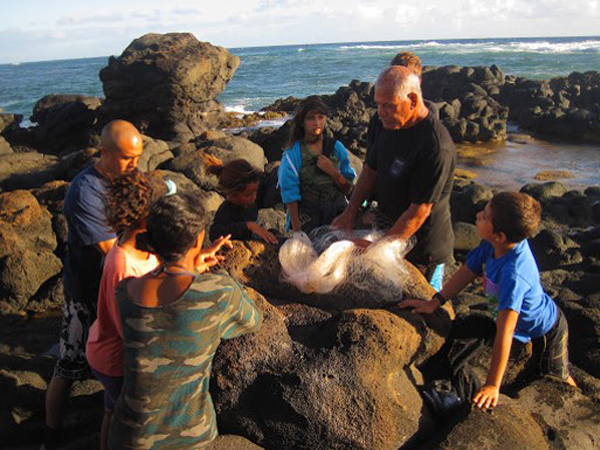Integrating social and cultural considerations into planning and community-based monitoring to reach marine conservation goal
Communities and marine ecosystems around the world are facing increasing impacts from climate change, including rising sea levels, intensifying storms, and degradation of coral reefs. Co-management, in which government agencies and local communities work together in monitoring local resources, is essential to understand and adapt to climate change impacts. Since climate change affects both communities and ecosystems, social and ecological health must be monitored using social, cultural, and ecological indicators. The Hawaiʻi Department of Land and Natural Resources, Division of Aquatic Resources (DAR) is working towards the goal of effectively managing Hawaiʻi’s nearshore waters with at least 30 percent established as marine management areas by 2030 to address the impacts of climate change and conserve marine ecosystems.

To achieve this goal, we will work with DAR to increase community engagement and conduct monitoring that integrates social and cultural indicators with their current ecological indicators. Through this project, we will conduct social and cultural principle and indicator training workshops with DAR, develop a community-based monitoring program, use survey methods to collect social and cultural indicator data, and create a model to inform marine monitoring. Using these approaches, this project will build capacity within DAR, engage communities to monitor social and cultural indicators, and provide recommendations for 30×30 and other marine conservation initiatives around the world.
PROJECT DETAILS
FUNDED:
FY2022
PI:
Mehana Vaughan
Associate Professor, Natural Resources and Environmental Management, UH Mānoa
Graduate Scholar:
Kapono Gaughen
Dept. of Natural Resources and Environmental Management, UH Mānoa
Co-I:
Meghan Tait
Dept. of Natural Resources and Environmental Management, UH Mānoa

